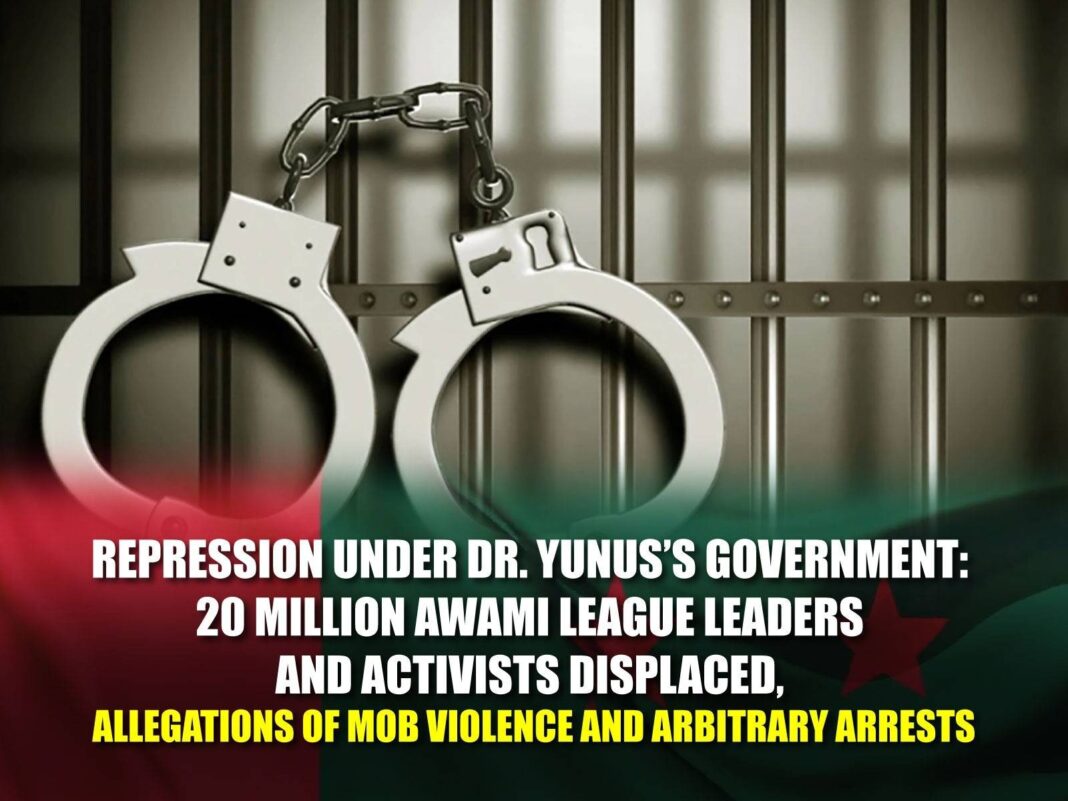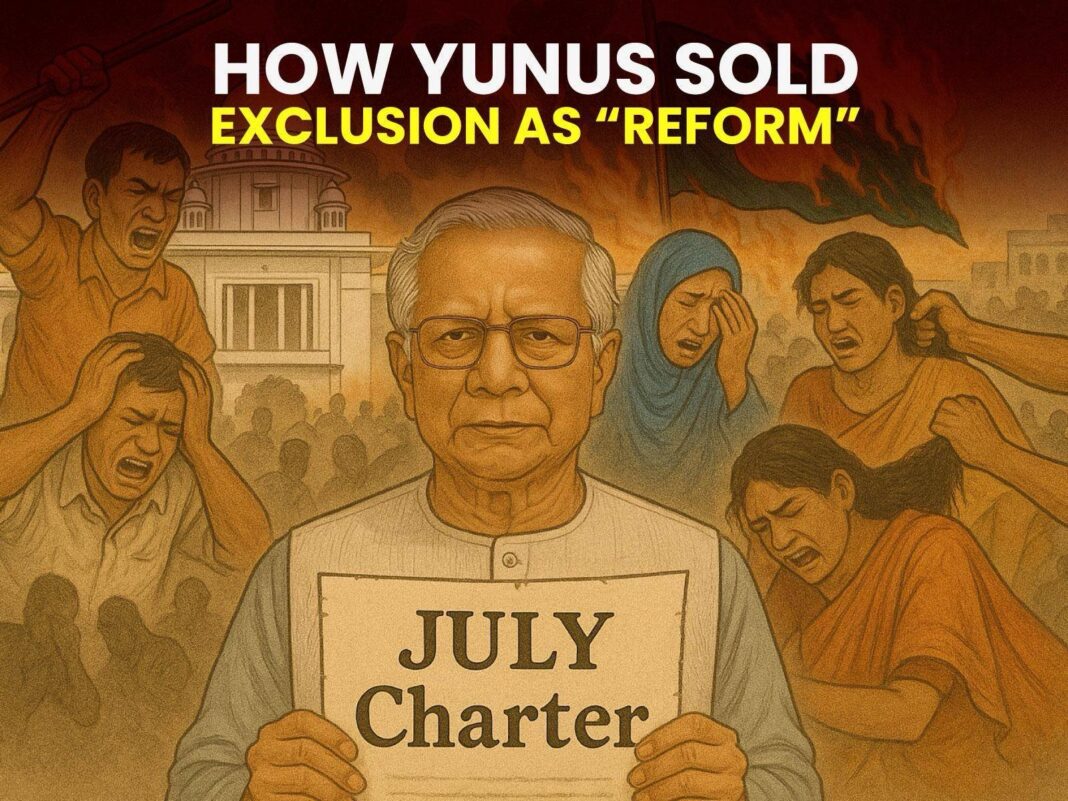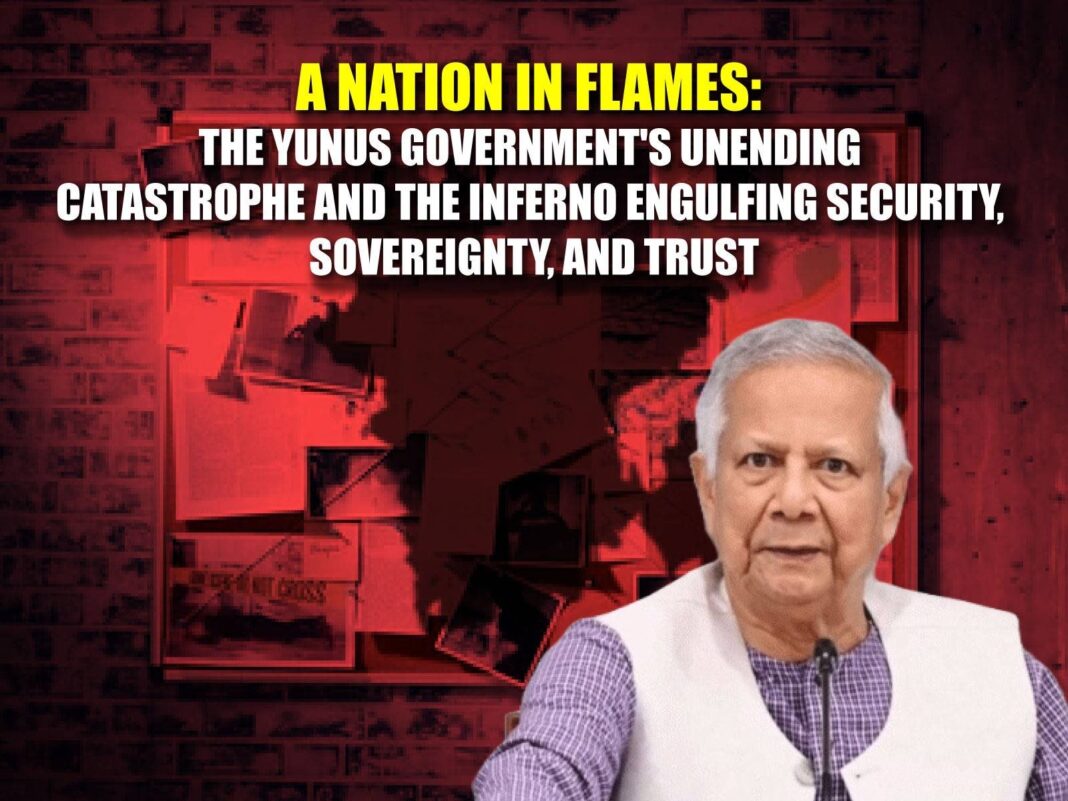20 million Awami League Leaders and Activists Displaced, Allegations of Mob Violence and Arbitrary Arrests
Since the fall of the Awami League–led government on August 5, 2024, an unprecedented wave of political vengeance has marked Bangladesh’s political landscape. According to the Awami League, since the so-called interim government under Dr. Muhammad Yunus assumed power about 13–14 months ago, nearly 15 to 20 million of its leaders and activists have been displaced from their homes.
The party alleges that this scale of persecution and displacement of ruling party workers is a rare event not only in South Asia but in global political history. Beyond losing their homes, hundreds of thousands of Awami League leaders and activists have reportedly been subjected to politically motivated attacks, false cases, and even killings during this period.
Mob Violence and Warrantless Arrests: The Main Causes of Displacement
Two major causes are being cited for this mass displacement: first, the unchecked mob terror carried out by BNP–Jamaat cadres, who allegedly targeted and set fire to the homes of Awami League supporters; and second, indiscriminate arrests conducted by the administration.
According to party activists, in many cases Awami League workers were picked up from their neighborhoods or forced to flee without any formal charges or legal proceedings.
One displaced leader said, “For the safety of our families and ourselves, we had no choice but to leave our area. We are now deprived of even the basic rights guaranteed by the Constitution.”
From Political Leadership to Day Labor
To escape violence, many displaced Awami League members are living in hiding and struggling to survive. Numerous rural activists have migrated to cities—some now pull rickshaws, while others have taken low-paid jobs in private offices under assumed identities.
Party sources say the most vulnerable are those from Dhaka Metropolitan Awami League and its affiliated organizations. As early as August 3 of last year, BNP–Jamaat activists began torching their homes, forcing them to flee to remote regions.
Despite these hardships, the party’s organizational activities have not stopped. Displaced leaders claim they continue to carry out political programs in secret, often risking their lives to return to Dhaka temporarily to coordinate operations.
Grave Human Rights Violations
The displaced activists describe the situation as a severe violation of human rights. They say this crackdown directly undermines the constitutional rights of every citizen in a democratic state.
Senior Awami League leaders have expressed deep concern over what they describe as an unprecedented campaign of political persecution and repression. The party has stated that diplomatic efforts are underway to draw international attention to this alarming picture of human rights violations.





